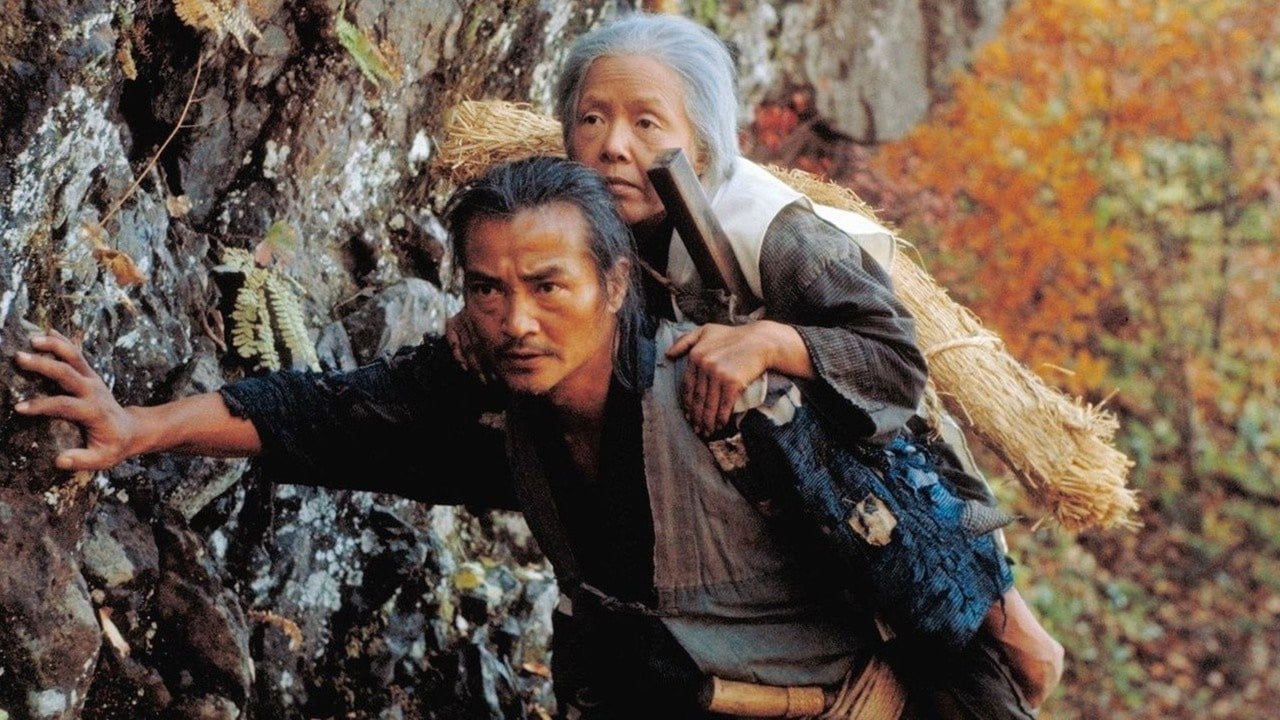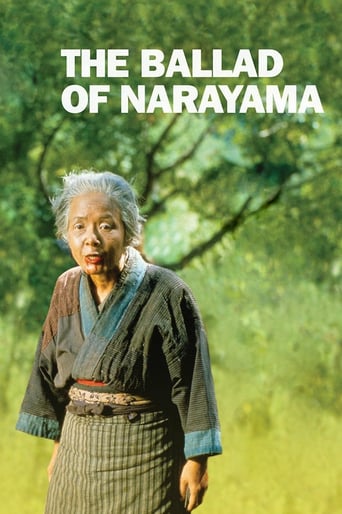

Wow! Such a good movie.
... View Morethe audience applauded
... View MoreThe best films of this genre always show a path and provide a takeaway for being a better person.
... View MoreIt's easily one of the freshest, sharpest and most enjoyable films of this year.
... View MoreBased of the old and unusual Japanese legend, Shohei Imamura's "The Ballade of Narayama" won the Golden Palm in 1983 Cannes Festival. Set in the 19th century in a remote mountain village in the north of the country, it tells of the custom according to which when a person reached 70 years old they were taken to the top of Mount Narayama and left there to die.When I saw "The Ballade of Narayama" back in the 80s, I did not know anything about it. There were no commercials; the film was not widely released. I think it was only two shows in the theater near our house in Moscow. All we knew that the film was a Cannes Festival winner. Our sons were little then, we did not have a babysitter, and we bought tickets to two different shows. My husband went first, and when he came back, I waited for him at the door, ready to leave. He looked quiet, serious and withdrawn when he returned home. I asked him how the movie was and he said to me to go and see it, and then we'd talk...After I came home, I did not want to talk, I did not know what to say, I was overwhelmed - with the unique style of film-making that I did not know even existed, with the images, but also with the very simplicity of the story and with the whole concept of surviving above everything else. Among the most devastating scenes for me was the old woman readily and happily accepting her turn to be taken to Narayma. The woman of perfect health and mind, the one who is perhaps the sanest in her family is so tired of this life that she on purpose knocks out one of her teeth just to seem older, more fragile, helpless, and ill and to be taken to the long -awaited rest. But before she is taken to Naryama, she will take care of her three grown sons' problems.There are many unforgettable scenes in the film, both bleak and life-affirming. One stands out after all these years. There is a shining brilliant spring day, and every living creature in sight is engaged in love, young couple on the swing, birds, animals, and snakes - the whole nature celebrates life and longing and love. And soon after that, as the contrast, the horrifying scene where the family of thieves who had stolen some food from the neighbors are buried alive.And there is the final part - the ascent to Narayama, the middle-aged son carries his mother to her final resting place, the last minutes between a son and his mother, and then, the snow in the end, white and pure, covering the earth and preparing it for the long sleep, and covering the old Orin, comforting her softly and preparing her for eternity...
... View MoreThis is actually an extraordinarily beautiful film, if one has even the remotest understanding of Japanese culture around that time period. The harshness of life in Japan made the sort of society in which people went to "be with their loved-ones" and "be with the God of the Mountain" at age 70 completely necessary. The focus of the film is the struggle for survival, and more than that, prospering, in the harsh environment of c. XIX Tohoku. The exploration of this topic takes the viewer into a study of survival through strict rules, and prospering through sexual relationships. The scenes of sexual intercourse serve to portray that even in sexual situations, the Japanese as a people have never viewed nature and animals as separate from ourselves.
... View MoreIt is a shocker, which opens on a villager finding a dead newborn boy on his field His only resentment is: why HIS field was chosen? The fact of murdering a baby doesn't seem to concern anyone in this hunger-stricken small village, population of which must adhere to rather radical if cruel set of regulations in order to secure the survival of their community. Set in the late 19th Century, this film will leave you to ponder the structure of our own society as you'll find many parallels with modern day. An unforgettable experience! This masterpiece is not for those who expect to be entertained. Be prepared to be haunted by the scenes of brutality and sexual fervor long after the movie is over. A must see for every serious cinema admirer.
... View MoreRating movies has always been a highly subjective procedure. I mean, "The Ballad of Narayama" would get only a *1/2 rating from me for being a grueling, extremely boring, completely unengaging experience, but there are undoubtedly many people that would consider this a masterpiece. Judge for yourself. It does have some memorable/shocking images that you're not likely to have seen before (they shouldn't be revealed here - just to get an idea, we see two snakes making love)....but isn't it a huge problem when we can't even tell the characters apart?
... View More